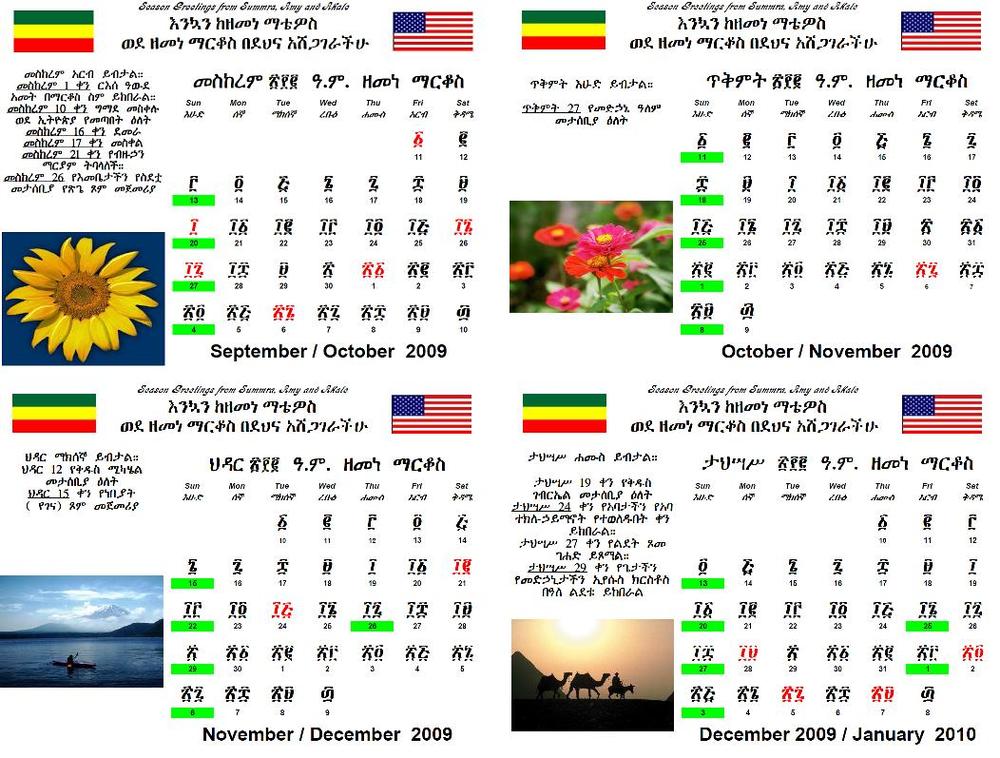The year 2024 brings a fascinating aspect to the Ethiopian calendar, a system that diverges from the Gregorian calendar used globally. Understanding what year it is in Ethiopia in 2024 can enhance your appreciation of its unique cultural and historical context. In this article, we will dive deep into the Ethiopian calendar, its differences from the Gregorian calendar, and the significance of its current year.
The Ethiopian calendar is rooted in ancient traditions and is used predominantly in Ethiopia and Eritrea. It is a solar calendar similar to the Julian calendar and consists of 13 months. The unique structure of the Ethiopian calendar often leads to confusion for those accustomed to the Gregorian system. As we explore the Ethiopian calendar for the year 2024, it’s essential to grasp the fundamental differences and the cultural implications behind this timekeeping system.
This guide will provide you with comprehensive insights into the Ethiopian calendar, including its history, key features, and the current year. We will also look at how the calendar affects various aspects of Ethiopian life, including festivals, agriculture, and daily activities. Whether you're planning to visit Ethiopia or simply curious about its calendar system, this article is tailored for you.
Table of Contents
- Overview of the Ethiopian Calendar
- Key Features of the Ethiopian Calendar
- Difference Between Ethiopian and Gregorian Year
- What Year Is It in Ethiopia 2024?
- Cultural Significance of the Ethiopian Calendar
- Festivals and Holidays in Ethiopia
- Agriculture and Timekeeping
- Conclusion
Overview of the Ethiopian Calendar
The Ethiopian calendar is based on the ancient Coptic calendar and is approximately seven to eight years behind the Gregorian calendar. It consists of 13 months: 12 months of 30 days each and an additional month, Pagumē, that has 5 days in a common year and 6 days in a leap year. This unique structure means that the Ethiopian New Year, known as Enkutatash, is celebrated on September 11 (or September 12 in a leap year).
Historical Background
The Ethiopian calendar has its roots in the Alexandrian calendar and has been used for centuries. It is believed to have been established in the 4th century AD during the reign of Emperor Haile Selassie. The calendar's continued use reflects Ethiopia's rich cultural heritage and its ability to maintain traditions despite external influences.
Key Features of the Ethiopian Calendar
The Ethiopian calendar has several notable features that distinguish it from the Gregorian calendar:
- 13 Months: As mentioned, the Ethiopian calendar comprises 13 months, with Pagumē as the extra month.
- New Year Celebration: The Ethiopian New Year falls on September 11, marking the start of the year.
- Leap Year Cycle: Leap years occur every four years, similar to the Gregorian system, but the extra day is added to Pagumē.
- Religious Significance: The calendar is heavily influenced by the Ethiopian Orthodox Church, affecting religious observances and celebrations.
Difference Between Ethiopian and Gregorian Year
The Ethiopian calendar is approximately 7 to 8 years behind the Gregorian calendar. To convert a Gregorian year to the Ethiopian year, subtract 8 years for dates between January 1 and September 10 and 7 years for dates from September 11 onward. For example:
- 2023 Gregorian = 2015 Ethiopian (Jan 1 - Sep 10)
- 2024 Gregorian = 2016 Ethiopian (starting from Sep 11)
What Year Is It in Ethiopia 2024?
As we look toward 2024, it is essential to understand what year it is in Ethiopia. The Gregorian year 2024 corresponds to the Ethiopian year 2016. The Ethiopian year will continue until the next New Year celebration in September 2024, when it will transition to 2017.
Cultural Significance of the Ethiopian Calendar
The Ethiopian calendar is deeply interwoven with the culture and identity of the Ethiopian people. It dictates agricultural practices, religious observances, and social events. Understanding the calendar is crucial for anyone looking to immerse themselves in Ethiopian culture.
Festivals and Holidays in Ethiopia
Many of Ethiopia's festivals are based on the calendar, with significant holidays including:
- Enkutatash: The Ethiopian New Year celebrated on September 11.
- Meskel: A festival commemorating the finding of the True Cross, celebrated on September 27.
- Genna: Christmas celebrated on January 7.
- Fasika: Easter celebrated on a date that varies each year.
Agriculture and Timekeeping
The Ethiopian calendar also plays a vital role in agriculture. Farmers rely on its structure to determine planting and harvesting seasons. The timing of festivals often coincides with agricultural cycles, reinforcing the connection between the calendar and the land.
Conclusion
In summary, understanding what year it is in Ethiopia in 2024 offers a glimpse into the unique aspects of the Ethiopian calendar. As we have discussed, the Ethiopian calendar is rich in history and cultural significance, influencing many facets of life in Ethiopia. Whether you are planning to visit or simply want to learn more, embracing the Ethiopian calendar enhances your appreciation of this vibrant culture.
If you found this article helpful, please leave a comment below, share it with friends, or explore more about Ethiopia and its traditions on our site. We welcome you back for more insights!
You Might Also Like
Lahna Turner: The Rising Star In Comedy And ActingExploring The Life And Achievements Of Keisha Combs
Exploring The Life Of Hermès Gustaf Daniel Giersch
Cari Champion Husband: The Ultimate Guide To Finding Your Perfect Partner
Kim Kardashian's Latest Video With Diddy: A Deep Dive Into Their Friendship And Collaborations
Article Recommendations


